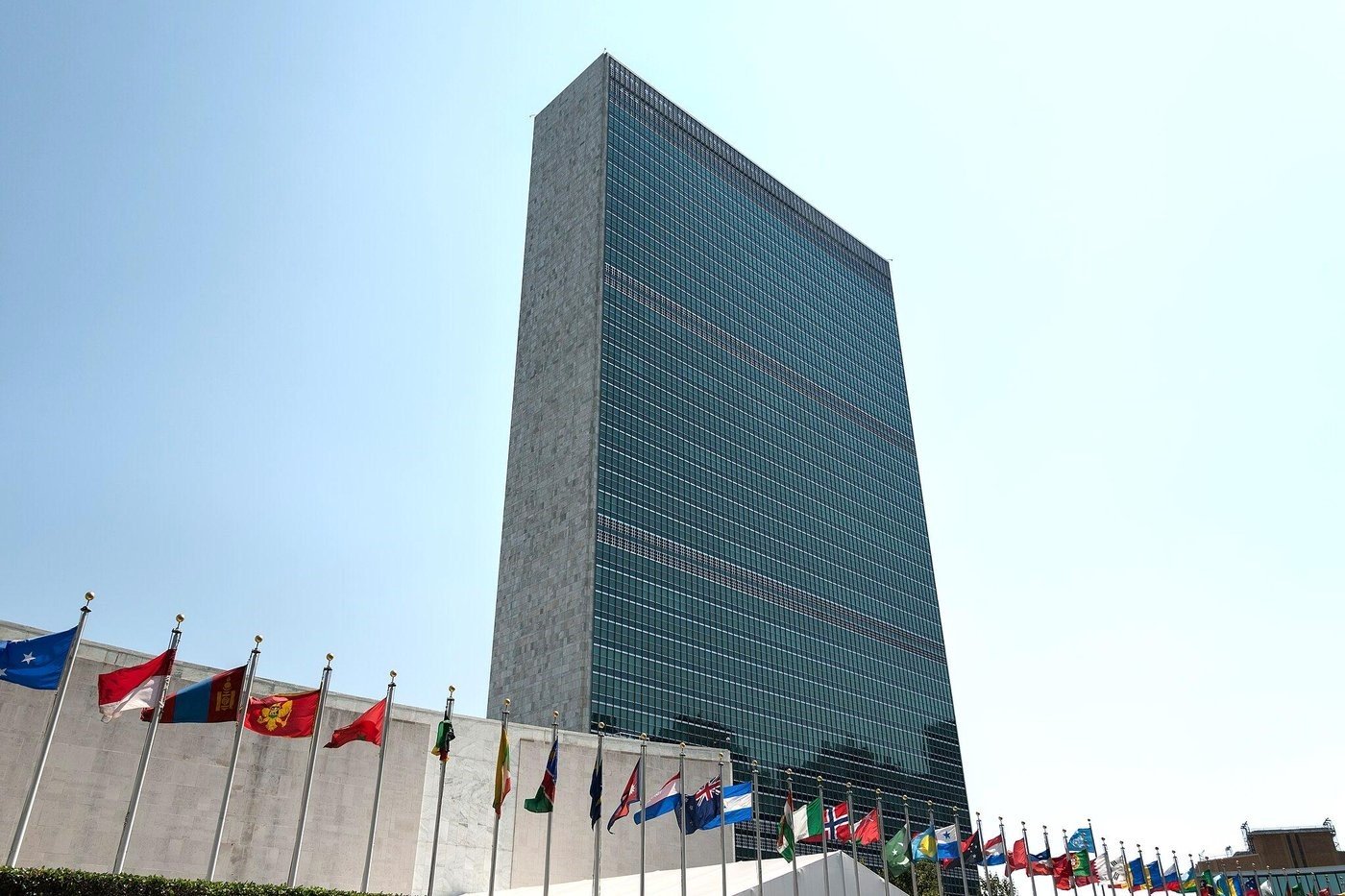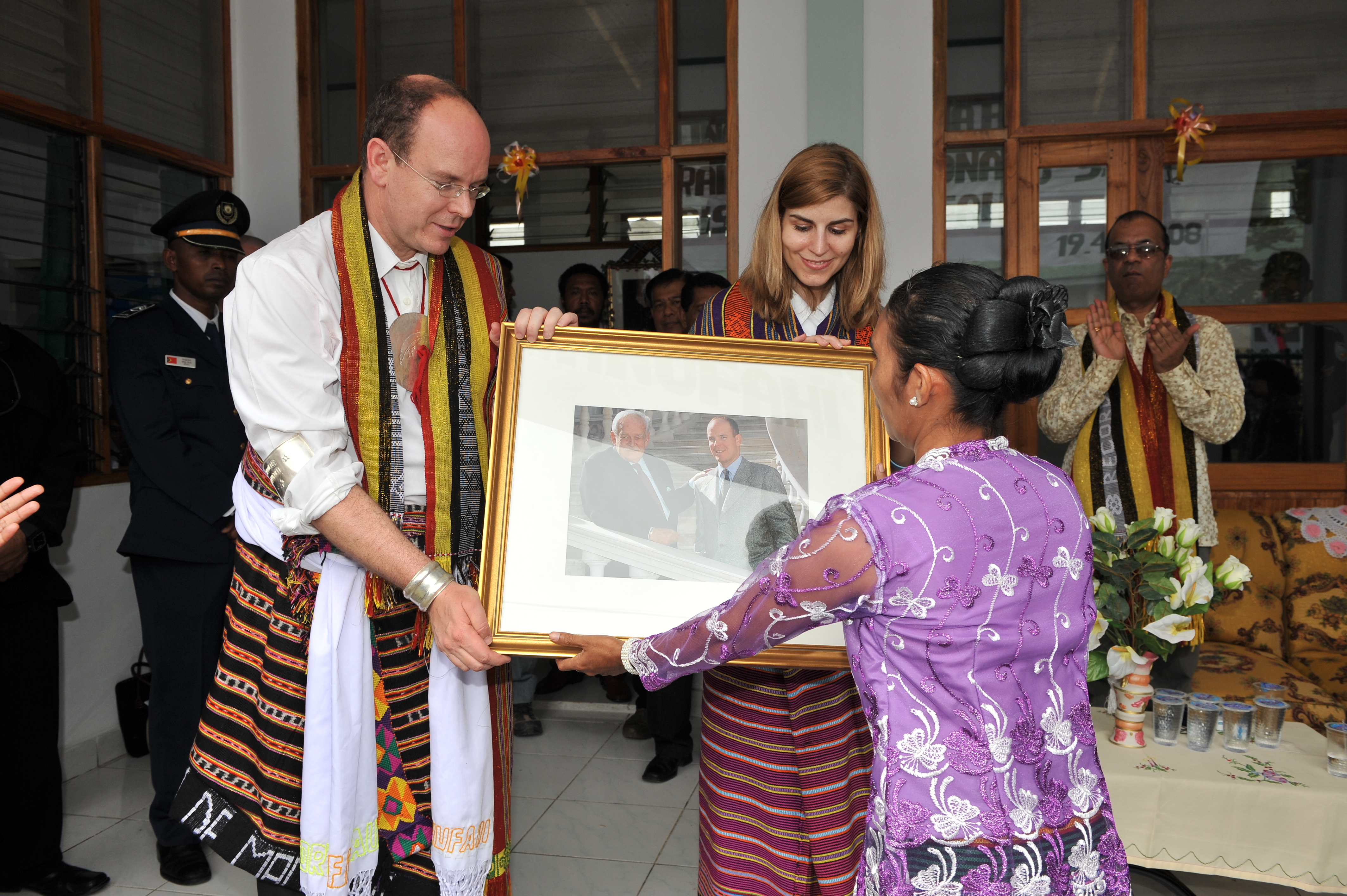On 25 September 2015, the 2030 Agenda for Sustainable Development was approved by world leaders, responding to new development challenges and paving the way for a future without poverty. Although none of the Sustainable Development Goals (SDGs) deal exclusively with young people, many sub-targets within the SDGs do focus explicitly on children and youth with indicators that are often disaggregated according to age clusters. The 17 SDGs represent an ambitious global objective and each plays a part in the achievement of sustainable development around the world.
Economic and political instability, on-going conflicts, climate change and increasing inequality are threats to all children and their communities. Demographic shifts, increasing urbanization, and new technologies are resulting in both new opportunities and challenges that the world has not grappled with before. In the midst of this turmoil and uncertainty about the future, it is clear that children and young people are affected by these global risks in a way that undermines their potential development over the longer term. Aflatoun International, Child and Youth Finance International (CYFI) and Child Helpline International (CHI) are strongly committed to the accomplishment of the SDGs through a systemic and harmonious range of activities, monitoring and campaigns that empower young people to make a positive change for a more equitable and sustainable world.
In the Photo: Mali Students Photo Credit: Giacomo Pirozzi/Aflatoun International
Preparing children to achieve a sustainable future
Children and youth are the world’s future but face a wide range of risk factors. Aflatoun International, CYFI and Child Helpline International work in a concerted manner to ensure that young people are protected, aware of their rights and responsibilities, and can attain sustainable futures. Each organization works collaboratively through a network of policymakers and implementing partners.
Related Article: “INVESTING IN ALL CHILDREN: TOWARDS EQUITABLE, INCLUSIVE, AND SUSTAINABLE DEVELOPMENT“
The three organizations work on multiple levels: namely, the individual, the community, the national and the international level. The programs developed by the three organizations are implemented by local actors on a country level, since their local knowledge can achieve more effective results. Furthermore, collaboration between government, civil society and the private sector is essential in order to achieve positive and durable change. This multilevel system aims at achieving 3 specific objectives: education, economic empowerment and child protection, which correspond closely with SDGs 4, 8 and 16, as shown in Figure 1.

Figure 1: The ‘integrated systems’ diagram
The progression of child protection, education and sustainable livelihoods is illustrated in Figure 2 below.Child Helpline International protects children by coordinating child helplines, so that their voices can be heard and appropriate assistance can be provided. Aflatoun International and CYFI aim to make young people confident and capable economic citizens, protecting them from exploitation within the financial sector, providing them with quality education and empowering them to secure sustainable livelihoods. By working in parallel, the three organizations can build systems that generate creative solutions for improved education, economic empowerment and child protection that are highly effective at both a large scale and over a long term.

Figure 2. The Progression from Social Protection to Education and Sustainable Livelihoods
SDG #4: Ensure inclusive and equitable quality education and promote lifelong learning opportunities for all
The fulfillment of the SDGs offers a brighter future without poverty where no one is left behind. This entails the acknowledgment of diversity in society, namely an understanding of the importance of working together to contribute to a sustainable future for all. Education is fundamental to this effort as it improves the ability of children and youth to accept diversity while giving them the opportunity to shape their destiny. In many countries, children and youth lack the skills and knowledge necessary to actively participate and contribute to societal well-being. These countries are often wrought by weak education systems, poor social services and limited employment opportunities, which altogether contribute to underdevelopment and unequal societies. Therefore, SDG #4 firmly advocates for the reduction of persistent inequalities and promotes global citizenship through education.
Aflatoun International believes that the only way to empower children and young people, especially the most vulnerable, is by giving them the right tools to build a sustainable future. The organization pursues its mission by providing quality educational content, integrated social and financial education curriculum, and professional teacher training. Financial education enables children to not simply acquire knowledge but also apply their skills in a worthwhile manner. Notably, a range of recent studies show positive effects of financial education on financial knowledge and behavior of children and youth. Therefore, Aflatoun International recommends educational authorities to integrate social and financial education into national curricula around the world as early as primary school level.
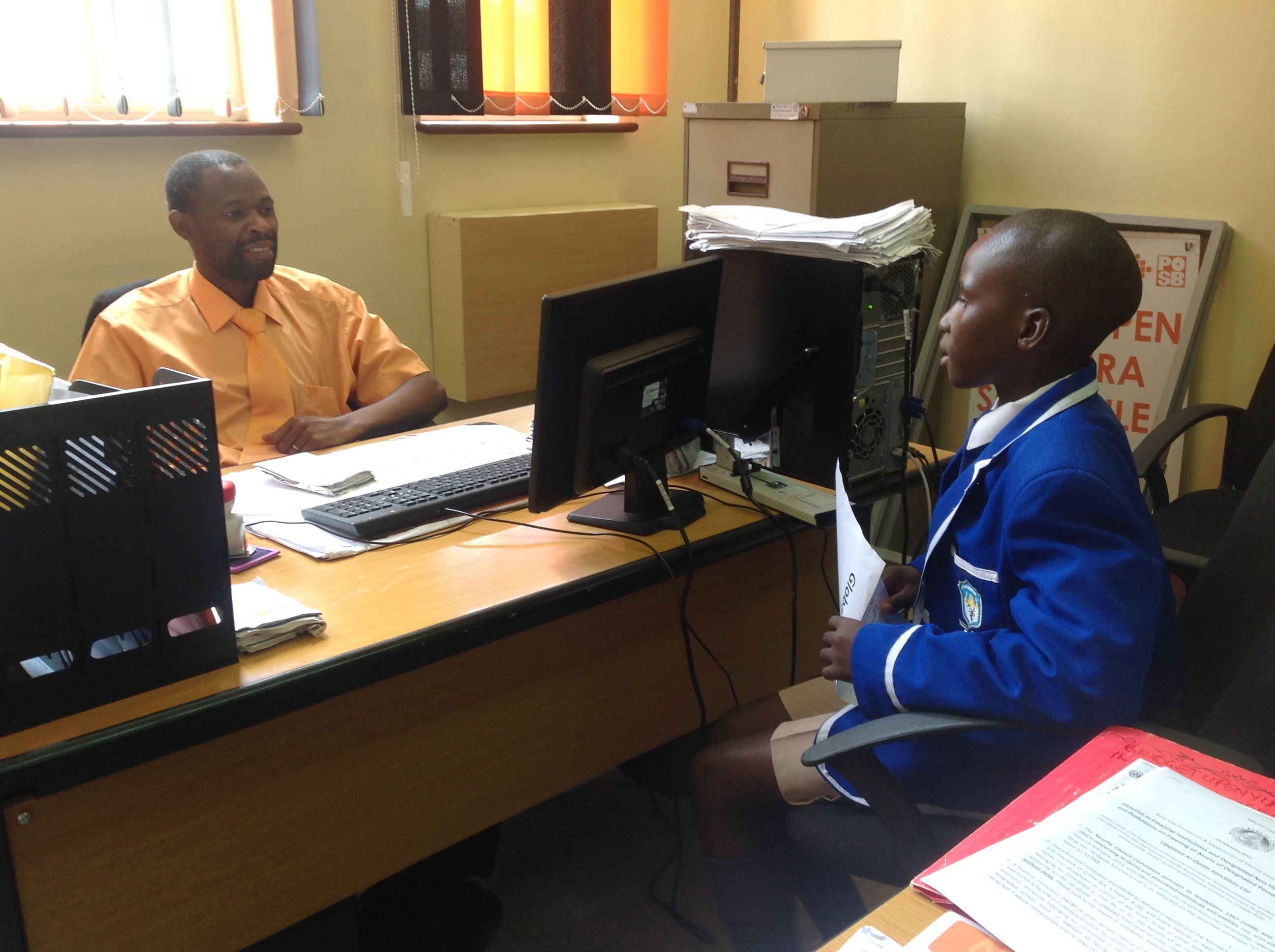
In the Photo: Zimbabwe, Boy at the Bank Photo Credit: Aflatoun International
Further, Aflatoun International has also developed special curricula for non-formal educational settings, targeting out-of-school youth, street children, abused children, and children in drop-in centres increasing its global reach. In the same manner, Aflatoun is currently helping the Bangladesh National Textbook and Curriculum Board (NTCB) with integrating Aflatoun’s SFE curriculum into the national educational system Moreover, since 2008 Aflatoun has been working with BRAC, which implements the Non-Formal Education (NFE) program on a weekly basis. In addition, both Aflatoun and CYFI have worked with Superintendencia de Banca, Seguros y Administradora Privadas de Pensiones (SBS) for the implementation of the Financial Education component of the National Strategy for Financial Inclusion (ENIF). Since 2015, this has achieved the approval of the new national curriculum that incorporates financial and citizenship education from primary to secondary school, a collaborative effort with representatives of private, public and civil society institutions.
SDG #8: Promote sustained, inclusive and sustainable economic growth, full and productive employment and decent work for all
CYFI supports the idea that all children and youth must have the possibility to realize their full potential as economic citizens. Although financial education is crucial for young people as future economic actors, social and livelihoods education and, importantly, access to Child and Youth Friendly financial services are equally important and should be offered in tandem.
The elements of the CYFI’s economic citizenship model (see figure 3 below) contribute to the achievement of the 2030 Agenda for Sustainable Development. This model consists of four components: financial inclusion, financial education, social education and livelihoods education. Economic citizenship has the potential to improve economic and social well-being, increase economic and social engagement, enhance understanding of and respect for basic rights, reduce income and asset poverty, and lead to sustainable livelihoods for children and youth.
 Figure 3. Child and Youth Finance International (CYFI) Model of Economic Citizenship
Figure 3. Child and Youth Finance International (CYFI) Model of Economic Citizenship
Economic Citizenship is particularly related to SDG #8. Recent studies show that financial inclusion supports the development of the financial sector and improves the chances of young entrepreneurs in starting and expanding their enterprises, thus creating employment.
Through its Child and Youth Friendly Banking Principles, CYFI advocates safe and quality financial services to reach unbanked children and youth. Importantly, these principles contribute to achieving a universal access to financial products which supports SDG #8. In the same vein, greater access to formal financial services and financial and business knowledge can help pave the way towards employment, entrepreneurship and investment opportunities, allowing young people to build their assets and invest in their own futures. Through social education, young people develop greater self-efficacy, empathy and confidence in their ability to take control of their social and economic lives while observing ethical principles.
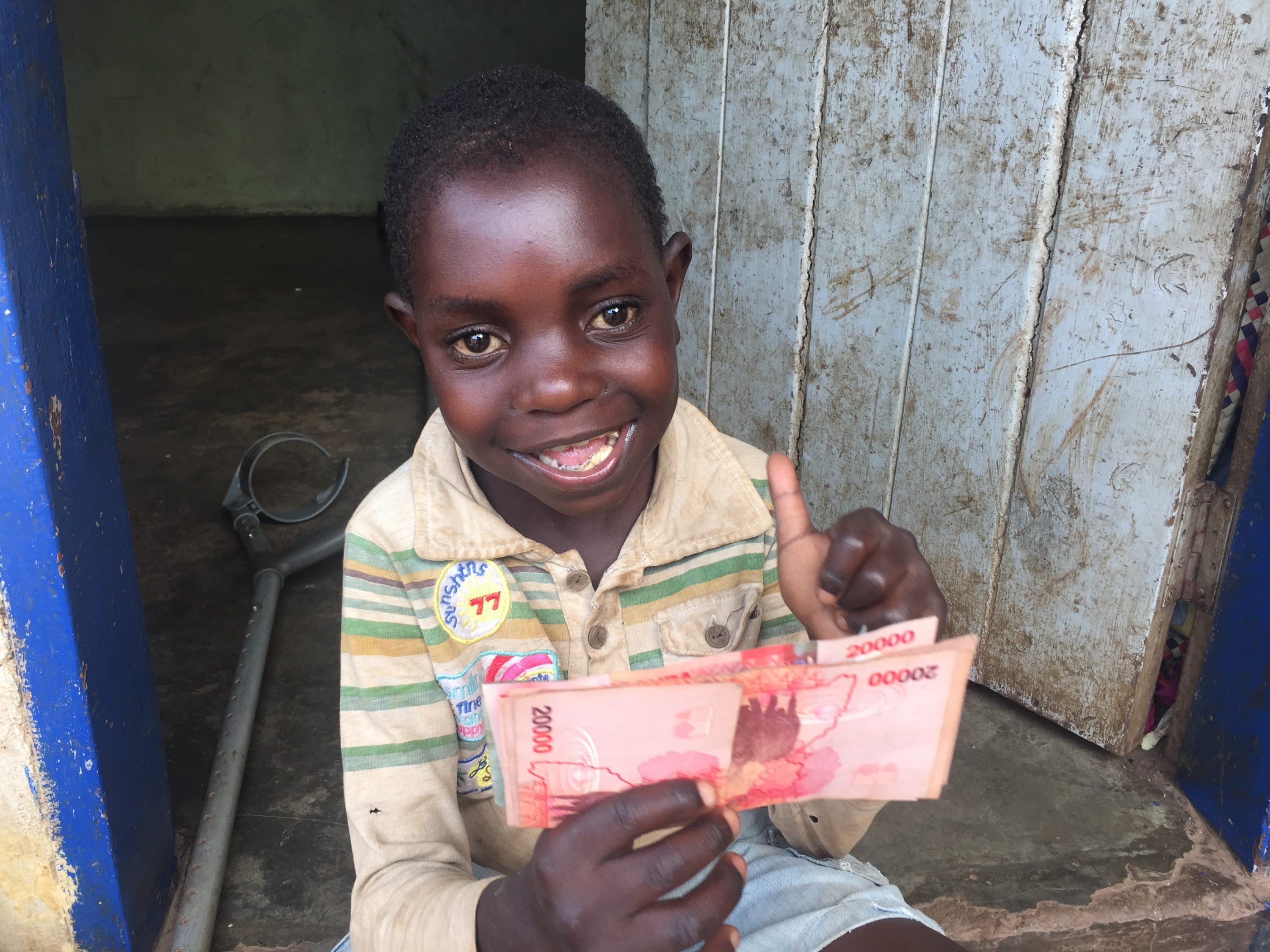
In the Photo: Ugandan Boy Photo Credit: Child and Youth Finance International
To promote youth employment, entrepreneurship, and ethical entrepreneurial culture, CYFI has also set up the Ye! Community, an innovative online entrepreneurship platform for young people between the ages of 16 and 30. It connects young entrepreneurs around the world and links them to various tools, resources, and opportunities to support the growth of their enterprises.
In Bangladesh, CYFI has used a multi-stakeholder approach to spreading financial inclusion and education, with solid partnerships with the Ministry of Education, Ministry of Finance, Ministry of Labour and the banking sector. CYFI has used its Global Money Week to provide the opportunity for financial authorities in both Bangladesh and Zambia to have interactive sessions with children and youth on their social and economic rights and responsibilities while increasing their overall financial awareness. CYFI has also contributed to the development of a new ‘Unit for Financial Inclusion’, recently established within the Central Bank of Egypt, and has helped to coordinate the first SchoolBank project in Egypt, providing technical assistance and expertise to a wide range of stakeholders.
SGD #16: Promote peaceful and inclusive societies for sustainable development, provide access to justice for all and build effective, accountable and inclusive institution at all levels
Violence against children and youth remains an unresolved and pervasive issue in society. It can take the form of psychological aggression, physical punishment, or result in sexually abusive and exploitative behaviours. Violence has an irreversible impact on the lives of young people, and puts them at risk of developmental delays and other behavioral problems. Violence against children is a challenge that needs concerted efforts to effect meaningful changes in young people’s lives.
For the first time, the right of children to live free from violence has been recognized as a milestone in the path towards inclusive and sustainable development. SDG 16.2 urges national governments to “end abuse, exploitation, trafficking and all forms of violence against and torture of children” by 2030. This is a global call that puts the stress on effective child protection systems, as a means to ensure the safety of children and the fulfillment of their rights.
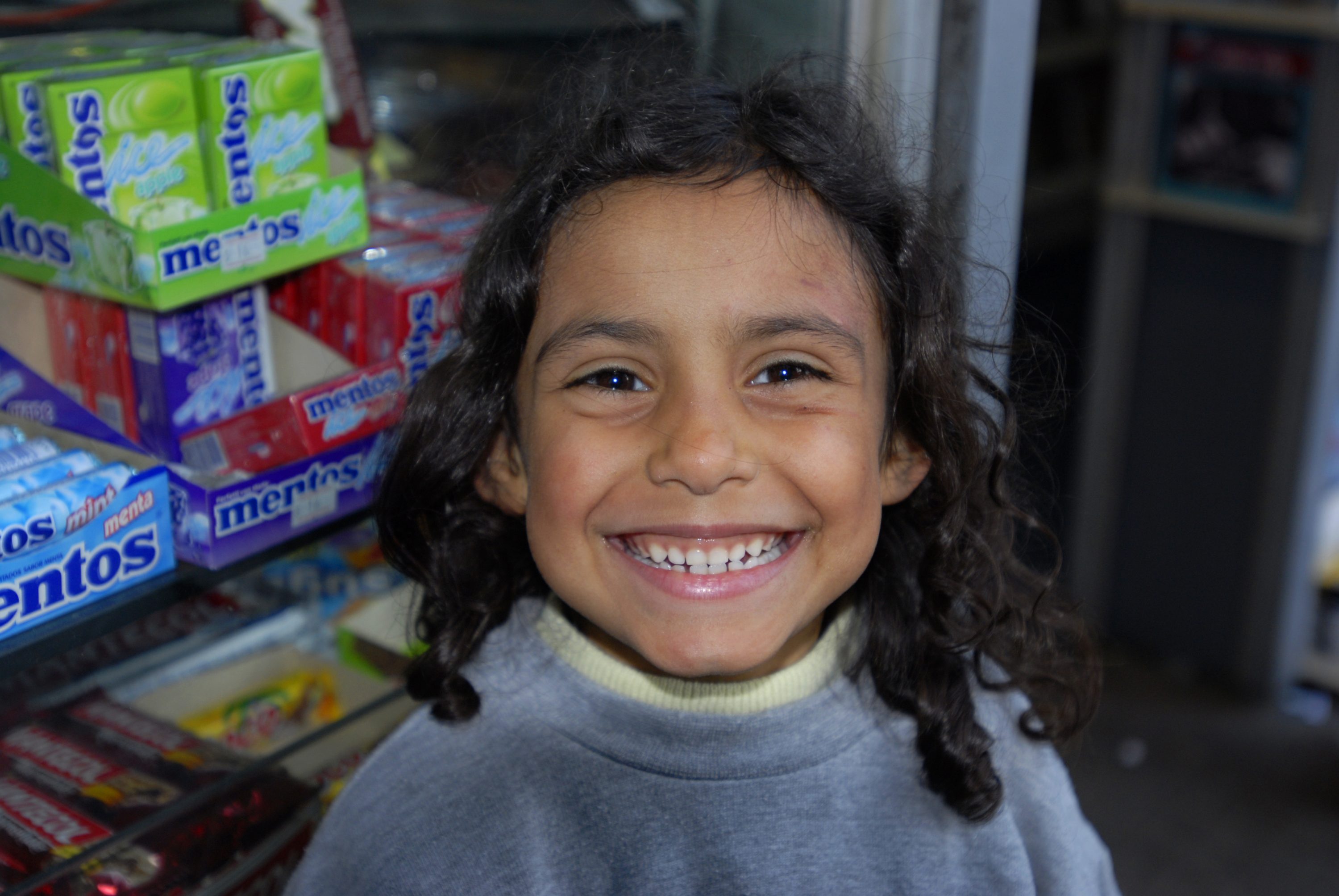
In the Photo: Girl Photo Credit: Sebastian Rich
Child helplines are a safe and trusted entry point to child protection systems. Every year, child helplines around the world field more than 20 million individual cries for help, mainly in Asia Pacific, Europe and the Americas. The main issues addressed by the children are psychosocial mental health, abuse and violence, child-related services, family and peer relationships, sexuality and sexual awareness.
Recommended Reading: “INVESTING IN OUR WORLD’S MOST VULNERABLE CHILDREN“
Child Helpline International contributes to the achievement of target 16.2 by coordinating the efforts of its child helpline members both at the regional and international levels, as demonstrated in Figure 4 below. Specifically, the organisation collects and analyses child helpline data that is pivotal for the monitoring of rates of violence against children around the world. This information is used to drive policy change and to advocate for the protection of children’s rights. Through strong child helplines, the organisation aims to strengthen child protection systems and, overall, improve institutional accountability and inclusiveness.

Figure 4. Child Helpline International, The Child Helpline Circle
Thanks to the efforts of Child Helpline International and its local partners in Bangladesh, the Child Labour Elimination Policy was adopted in 2010. Furthermore, in 2013 Child Helpline International worked with its partners to create a Children’s Law and consequently establish child welfare desks in police stations. Moreover, it worked with ANAR Foundation in Peru for the approbation of the Law 30403, which officially forbids the use of physical punishment as a corrective method for children. Child Helpline International has also developed telephone assistance for Egyptian children, becoming a specific coordinated presence to defend children’s rights related to early marriage and human trafficking.
Conclusion
The long-lasting and enduring change envisioned by the 2030 Agenda will only be realised if children and youth are fully equipped with the tools needed to engage with the challenges of the future, along with the support systems required to protect and uphold their rights and well-being. Education, economic citizenship, financial inclusion and protection for children and youth, therefore, each play an integral role in the achievement of the 2030 Agenda. In this regard, expanding financial inclusion and financial, social and livelihoods education for children and youth is crucial in creating future generations that are more empowered, engaged and aware of social and financial matters. A unified, systemic and collaborative approach towards youth issues within the 2030 Agenda is necessary in order to ensure that young people are protected, aware of their rights and able to take advantage of economic opportunities to sustain a livelihood for themselves and others. Coordination amongst development actors can indeed make development policy and action more coherent and effective. Aflatoun, CYFI and Child Helpline International are committed to working together with these diverse development actors to help achieve the 2030 Agenda and advance the social and economic well-being of young people throughout the world.
Contributing Authors
Jeroo Billimoria – Jeroo is a social entrepreneur and the founder of several innovative and award-winning international NGOs. Jeroo is a globally respected speaker and advocate of economic empowerment for children, and her social and humanitarian work has reached the lives of millions of children around the world. Jeroo’s most recent initiatives include founding Aflatoun, Child Helpline International and Child and Youth Finance International (CYFI).
Jared Penner – Jared has been involved in youth economic empowerment and educational programming for the past 10 years. He currently manages the Thought Leadership and Consultancy Department at Child and Youth Finance International (CYFI), advancing quality standards in Child and Youth Friendly Banking policy and practice and financial, social and livelihoods education through a global network of government authorities and youth serving organizations.
Emmy Dexel – Emmy is Head of Communications at Aflatoun International, developing and implementing the global media and communications strategy. Prior to joining the NGO offering social and financial education to millions of children worldwide, she was Media & Communications Manager at the Thomson Reuters Foundation, Executive Producer for Discovery and content producer at Amnesty International.
Helen Mason – Helen is Chief Operating Officer at Child Helpline International. She leads the Operations Team and plays a key role in ensuring that Child Helpline International’s strategy, as approved by the member child helplines, is implemented. Prior to working at Child Helpline International, Helen worked in the corporate sector and has over 15 years’ experience in a variety of management roles.
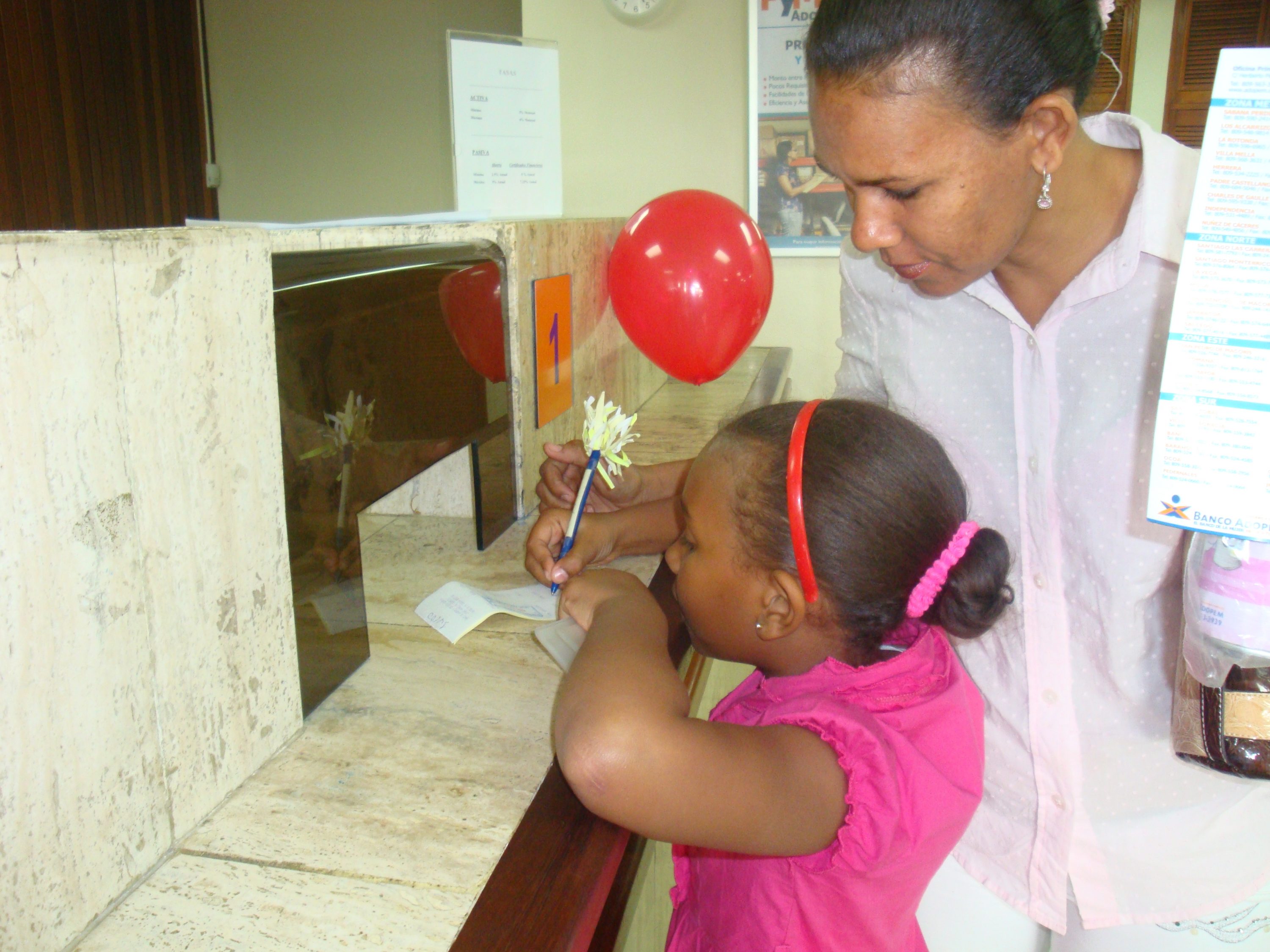
In the photo: Girl Signing for a Bank Account Photo Credit: Child and Youth Finance International
Contributing Organizations

Child Helpline International is one of the world’s largest collective impact organisations, a network of 181 organisations in 139 countries, which fields millions of contacts a year from children and young people in need of support and protection. Since its founding in 2003, it has supported the creation and strengthening of child helplines, and interpreted child helpline data to highlight gaps in child protection systems, and to advocate for the rights of children and youth around the world. Every child has a voice and Child Helpline International’s network strives to make their voices heard, respected and acted upon.

Aflatoun International is an NGO offering social and financial education to millions of children and young people worldwide, empowering them to make a positive change in their lives and the communities they live in. Through a strong network of 192 partner organisations and 28 governments Aflatoun International implements programmes in 116 countries, giving children and young people the tools to be both innovators and change makers.

Child and Youth Finance International (CYFI) is a NGO that leads the world’s largest Movement dedicated to fight poverty through enhancing the financial capabilities of children and youth. Since its foundation in 2012, CYFI has partnered with thousands of organizations in 132 countries to provide young people around the world with access to safe and appropriate financial services, enhance their awareness of economic rights, and empower them to build their assets, invest in their future and ultimately break the cycle of poverty.


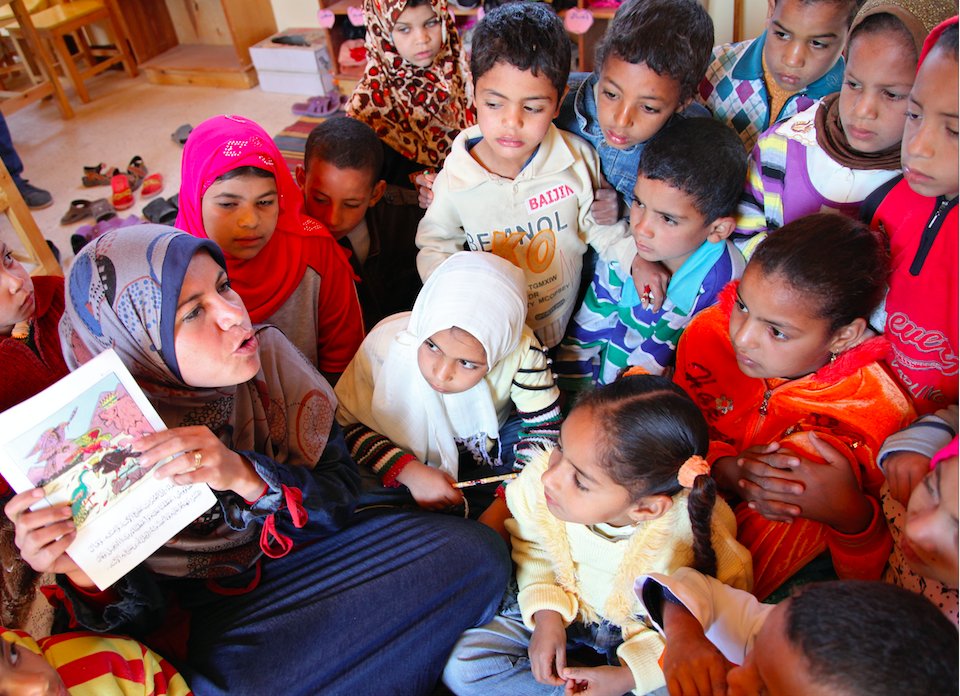
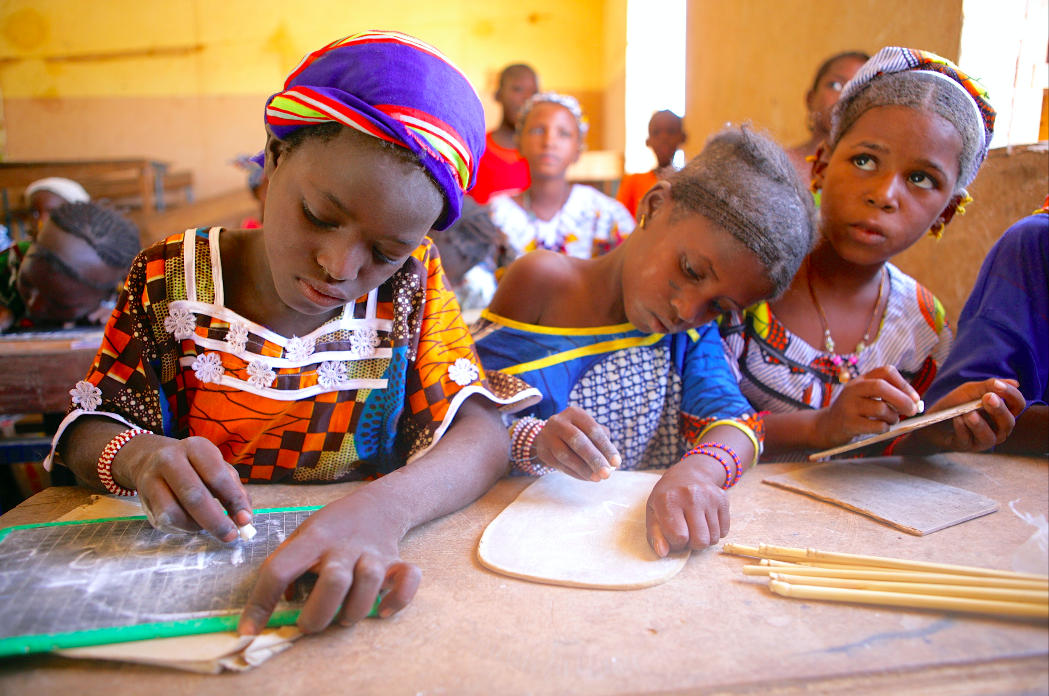
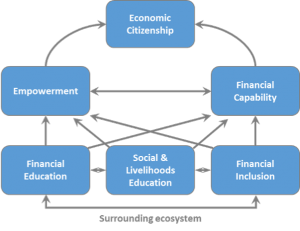 Figure 3. Child and Youth Finance International (CYFI) Model of Economic Citizenship
Figure 3. Child and Youth Finance International (CYFI) Model of Economic Citizenship
